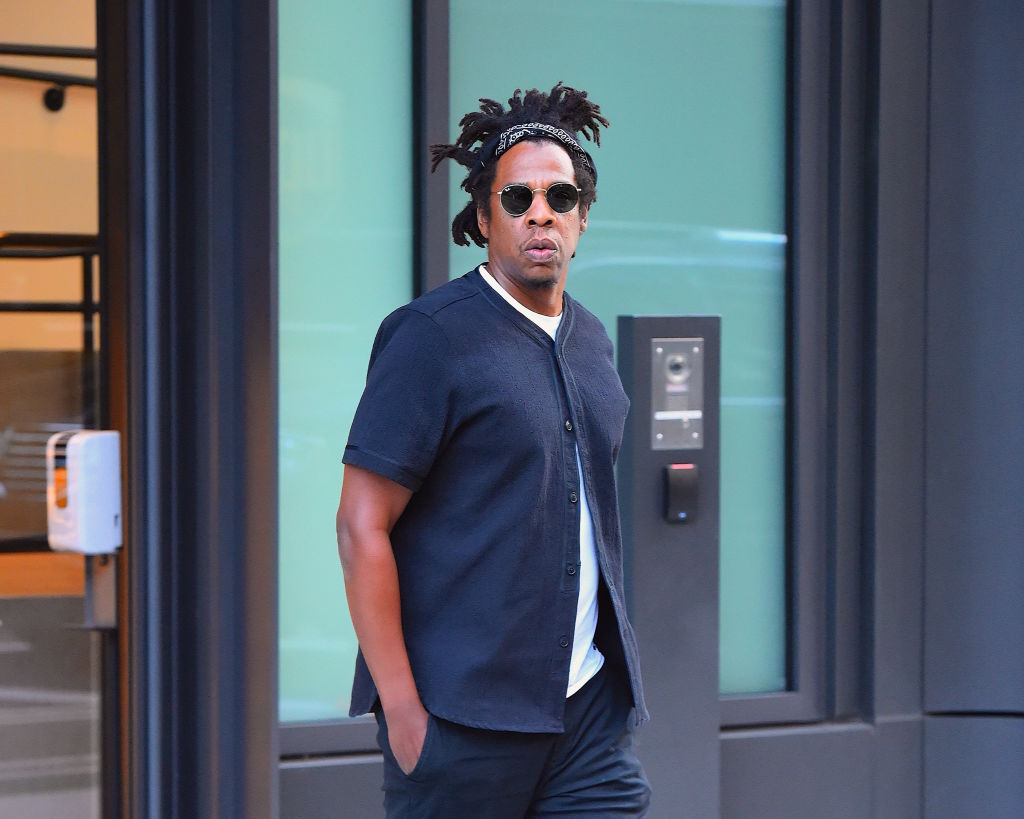
Source: Robert Kamau / Getty
Photographer Jonathan Mannion has snapped the covers for a number of iconic hip-hop albums, including Eminem’s The Marshall Mathers LP and Lil Weezy’s Carter II. However, Jay-Z (real name Shawn Carter), who was one of Mannion’s former clients, is taking the Cleveland, OH shutterbug to court per the claim he “exploited” Hova’s name and likeness by using them to sell various merchandise and profit “without [his] consent.”
Jay-Z has had plenty of album covers done by Mannion, beginning with his 25-year old landmark debut Reasonable Doubt through 2003’s critically acclaimed The Black Album. However, it now looks like the love is lost between the two. “It is ironic that a photographer would treat the image of a formerly unknown Black teenager, now wildly successful, as a piece of property to be squeezed for every dollar it can produce. It stops today,” reads the suit.
According to the paperwork submitted by Carter’s legal team, “Mannion has developed a business for himself” by selling t-shirts with the rapper’s name, custom turntable slipmats (which have since been taken down from his website), and is operating in violation of 3344 of California Civil Code and California Common Law Right of Publicity with unauthorized use of anything tied to Jay-Z.
The suit further alleges the rapper requested that Mannion stop selling the merch, but Mannion doubled down instead and “demanded that Jay-Z pay him tens of millions of dollars to put an end to Mannion’s use of Jay-Z’s likeness.” In response, Jay-Z said he is “entitled to recover punitive and exemplary damages” as well as receive a “preliminary and permanent injunction” against Mannion so as to shut down the photog’s business association with him in that way.
But a legal rep for Mannion did release a statement in response to the suit Tuesday night, and there was an intimation of certain ungrateful hypocrisy on the part of Jay-Z. “Mr. Mannion has the utmost respect for Mr. Carter and his body of work,” the rep allegedly said. “And expects that Mr. Carter would similarly respect the rights of artists and creators who have helped him achieve the heights to which he has ascended.”
The rep then cited Mannion’s protection under the First Amendment and that the photographer would “review the complaint and respond in due course.”
















